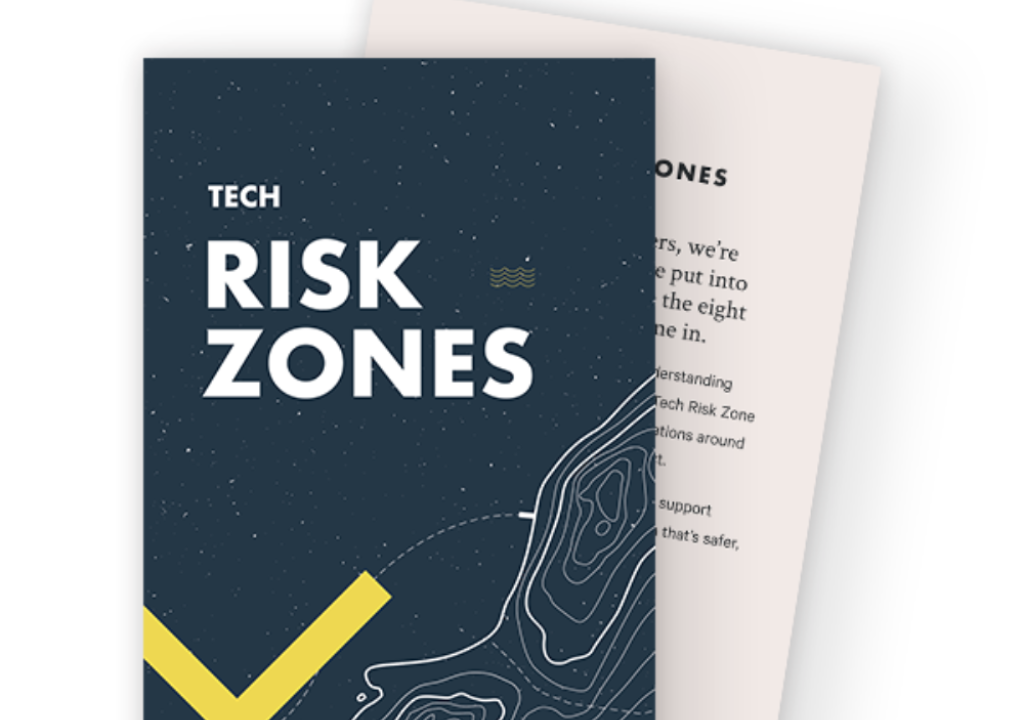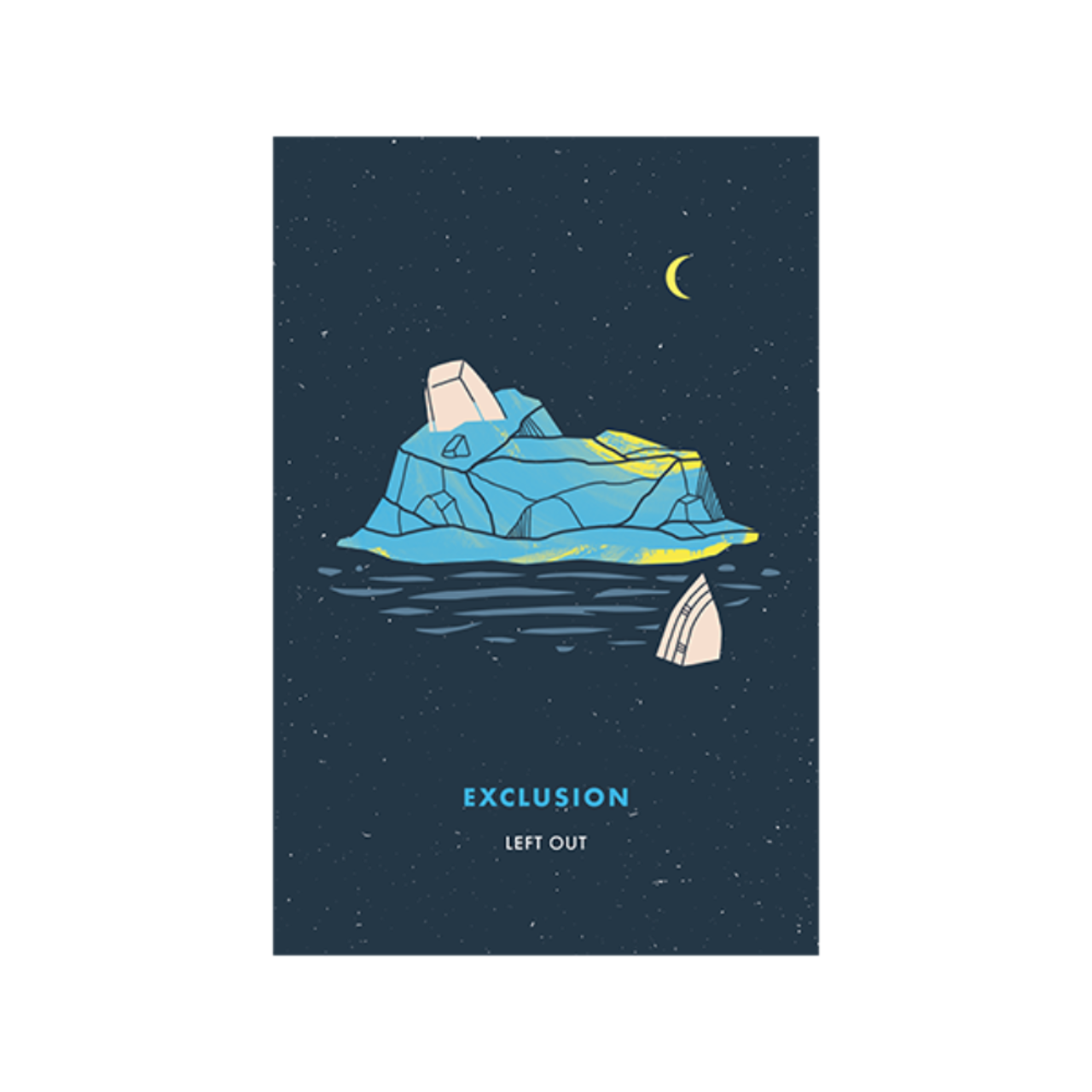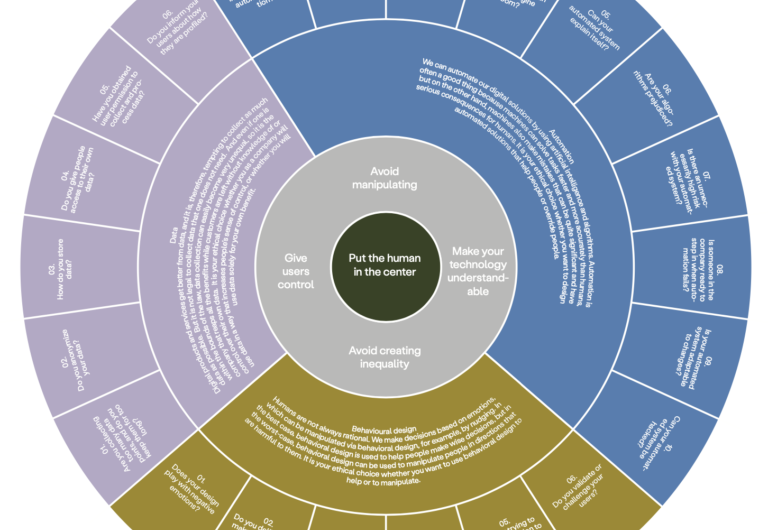The Ethical Explorers Pack consists of a Field Guide and a card set with 8 Tech-Risk-Zones, which all show a possible risk of technology, such as bias or surveillance. Every Tech-Risk-Zone has two cards. The first card has a beautiful front and an introduction with a main question. The second card helps you based on different deeper questions to study this risk for your organisation. The ‘addiction’ card, for example, helps you to think about how much your technology can be addictive for the users and how you could prevent unhealthy behaviours by engaging with your users in a different way.
The Field Guide shows multiple ways in which you can use the cards. In a workshop, for example, or on your own, to discover your principles and what you think is important.
What is interesting is that the pack doesn’t assume that everyone within your organisation will understand the need for an ethical exploration in the development of your technology. That’s why the Field Guide offers multiple ways to convince your peers and superiors of the added value of the cards by, for example, showing how to answer common excuses, worries, and criticisms.
The Ethical Explorers Pack seeks to bring out ethical questions not once in a development process, but to actually bring responsibility for ‘responsible tech’ as a habit within the organisation. The field guide and cards will make you think for yourself to better understand the risks of technology, and are also a useful tool to refer back to each time you develop technology applications.






